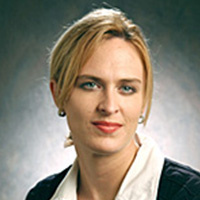Granville White Collar Crime Lawyer, Ohio
Sponsored Law Firm
-
 x
x

Click For More Info:
-
The Law Offices of Richard L. Cooper, P.A.
848 Brickell Avenue Suite 800 Miami, FL 33131» view mapDWI/DUI, Drug Trafficking, Felony Nationally Ranked Top 40 Under 40
With Richard L. Cooper you can expect a trusted confidant who will work diligently to fully understand your case and determine a road map to help you regain control of your life.
800-756-2781
Kendra L. Bunn
✓ VERIFIEDWhite Collar Crime, Education, Immigration, Employment, International
Since 1999, Ms. Bunn has dedicated her entire career to the practice of immigration law. She was one of the first female attorneys to practice immigra... (more)
Jody Scott Miller
Antitrust, Constitutional Law, Traffic, White Collar Crime
Status: In Good Standing
FREE CONSULTATION
CONTACTFREE CONSULTATION
CONTACTJames Lloyd Ervin
Corporate, Litigation, White Collar Crime, Government
Status: In Good Standing Licensed: 29 Years
Henry Ritchey Hollenbaugh
Dispute Resolution, Election & Political, White Collar Crime, Litigation
Status: In Good Standing
David Hansen Thomas
Juvenile Law, White Collar Crime, Criminal, Business & Trade
Status: In Good Standing Licensed: 26 Years
Stephen Ernest Palmer
Accident & Injury, Other, White Collar Crime, Criminal, DUI-DWI
Status: In Good Standing Licensed: 29 Years
Samuel B. Weiner
Traffic, White Collar Crime, DUI-DWI, Criminal
Status: In Good Standing Licensed: 43 Years
Kathryn Sarah Wallrabenstein
Traffic, Litigation, White Collar Crime, Criminal
Status: In Good Standing Licensed: 11 Years

 Richard L. Cooper Miami, FL
Richard L. Cooper Miami, FL AboutMiami Attorney at Law
AboutMiami Attorney at Law ServicesCriminal Defense
ServicesCriminal Defense

